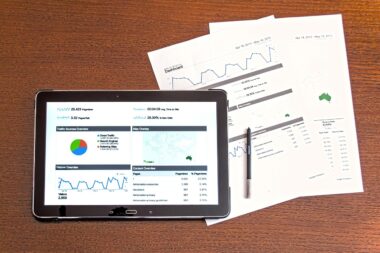Integrating Task Management into Your CRM Workflow
In today’s fast-paced business environment, the importance of task management within Customer Relationship Management (CRM) systems cannot be overstated. Integrating task management into your CRM workflow streamlines operations, enhances communication, and boosts productivity. When tasks are seamlessly integrated, teams can collaborate more effectively, ensuring that no customer interaction slips through the cracks. A well-organized task management system helps to keep track of follow-ups, deadlines, and responsibilities, improving accountability. Moreover, having visibility into all tasks associated with customer interactions allows businesses to prioritize efforts strategically. This ensures that time and resources are allocated where they can have the most impact. By reducing the clutter in communication channels and establishing a centralized task management practice, businesses can respond quicker to customer queries and needs. Additionally, CRM systems with integrated task features often provide valuable tools such as reminders and scheduling, allowing teams to stay ahead. Overall, integrating task management into your CRM workflow is essential for enhancing customer satisfaction and optimizing business outcomes.
One significant benefit of integrating task management within a CRM system is improved team collaboration. With shared visibility into customer tasks, team members can see who is responsible for what, thereby minimizing redundancies and confusion. When each member knows their assignments, the organization runs more smoothly. Additionally, collaboration tools within some CRM systems, such as shared calendars and comment threads, help teams discuss elements of ongoing projects effectively. This prevents isolating roles and encourages contributions from multiple departments, enhancing creativity and problem-solving capabilities. Furthermore, real-time updates about task statuses can alert team members to potential delays or issues. This transparency allows for quicker decision-making regarding resource allocation or project adjustments. Additionally, having a unified platform means that every stakeholder can remain informed and engaged, promoting a culture of accountability. When task management aligns with CRM, not only are team dynamics improved, but data generated from completed tasks also helps refine customer insights. Overall, integrating these systems fosters an environment where collaboration thrives, ensuring your goals are met efficiently.
Boosting Customer Satisfaction with Accountability
Integrating task management capabilities into your CRM framework directly correlates with increased customer satisfaction. When team members know their duties and deadlines, it allows them to respond promptly to customer inquiries or concerns. This accountability ensures commitments are met, enhancing trust and reliability within client relationships. In a customer-driven market, responding quickly can be the difference between securing or losing a deal. Furthermore, organized task management translates to fewer errors and higher success rates in customer interactions. By having a robust system that outlines follow-up actions, appointments, and unresolved issues, teams can provide personalized, attentive service. Task prioritization mechanisms within CRMs allow for targeted approaches, ensuring pressing customer needs are addressed immediately. This proactive stance not only resolves existing concerns but also proactively identifies opportunities to upsell or cross-sell services, further improving satisfaction. As customers feel valued and understood, they are more likely to remain loyal and advocate for your brand. In essence, integrating task management into your CRM is not just about efficiency; it’s about nurturing long-term customer relationships built on trust and satisfaction.
Moreover, an integrated task and activity management feature within a CRM can significantly enhance decision-making abilities within companies. By analyzing completed tasks, teams can derive valuable insights about customer engagement patterns, preferences, and needs. This data becomes instrumental in guiding future marketing strategies, product enhancements, and customer service protocols. For example, if a pattern reveals that customers frequently inquire about a specific feature, businesses can focus on optimizing that area or providing additional training for their teams. Equally, the ability to filter tasks by customer segments or product lines offers managers insights into areas needing attention or improvement. Data-driven decision-making becomes a reality with this integration, empowering leadership with the information required to make informed choices that align with customer expectations. Additionally, an aggregated view of customer interactions, associated tasks, and outcomes helps identify trends that might signal shifts in market demands. Being responsive to these trends can put businesses ahead of the competition, fostering growth and sustainability in the long run. Thus, a robust CRM with task management capabilities is indispensable for effective decision-making.
Boosting Efficiency with Automation
Task management in CRM systems often comes embedded with automation features that streamline workflows significantly. Automating routine tasks such as email follow-ups, meeting reminders, and task assignments saves valuable time, allowing employees to focus on more strategic activities. This is particularly important in high-volume environments, where manual task handling can lead to errors or inefficiencies. By setting up triggers and workflows, businesses can ensure that necessary tasks are executed consistently and promptly. Automation also reduces the risk of human error, ensuring that critical steps in customer interactions are never overlooked. For instance, a CRM can automatically assign tasks based on urgency, client tier, or workload distribution, thereby promoting optimal efficiencies within teams. Automation also frees up time for employees, enabling them to engage in deeper relationship-building activities with customers versus administrative tasks. As a result, organizations can scale operations without sacrificing quality, leading to enhanced productivity. Streamlining processes through automation makes it easier to manage customer interactions effectively, ultimately resulting in happier customers and increased business growth.
Moreover, the integration of task management into CRM platforms often features customizable dashboards that enhance visibility and operational clarity. These dashboards allow users to see an overview of tasks, progress metrics, and pending assignments in an intuitive format. When employees can visualize their workload, they can prioritize tasks more effectively and allocate resources accordingly. This flexibility is particularly beneficial in fast-paced environments where demands can often shift unexpectedly. A CRM with a customizable dashboard facilitates real-time updates, enabling teams to adapt their activities based on current conditions. Additionally, managers gain powerful insights into employee performance, helping to identify training opportunities or resource gaps. By tracking task completion rates and timelines, businesses can hold their teams accountable while also fostering a culture of continuous improvement. A transparent system ensures everyone is on the same page, thus enhancing efficiency and morale. Overall, the ability to tailor dashboards to specific team needs not only improves individual productivity but also aligns team efforts with broader organizational goals, significantly enhancing overall effectiveness.
Conclusion: The Future of CRM
In conclusion, integrating task management into your CRM workflow is no longer just an option; it is a strategic necessity for businesses aiming to thrive in today’s competitive landscape. As customer expectations continue to evolve, organizations must adapt by ensuring efficient task handling and proactive customer engagement. The seamless integration of task management capabilities into CRM systems allows for enhanced collaboration, accountability, and data-driven insights. As automation becomes more prevalent, businesses can optimize their workflows, ensuring that employees dedicate their time to fostering valuable customer relationships rather than merely managing administrative tasks. Furthermore, customizable dashboards provide teams with real-time visibility into task progression, promoting a higher level of productivity and morale. As the market landscape shifts, leveraging technology in a way that prioritizes customer needs will be fundamental. Companies that embrace this integration will not only cultivate long-lasting relationships with customers but also drive growth and innovation. Ultimately, a future-focused approach to CRM, emphasizing effective task and activity management, will be crucial in determining the long-term success of any business.





